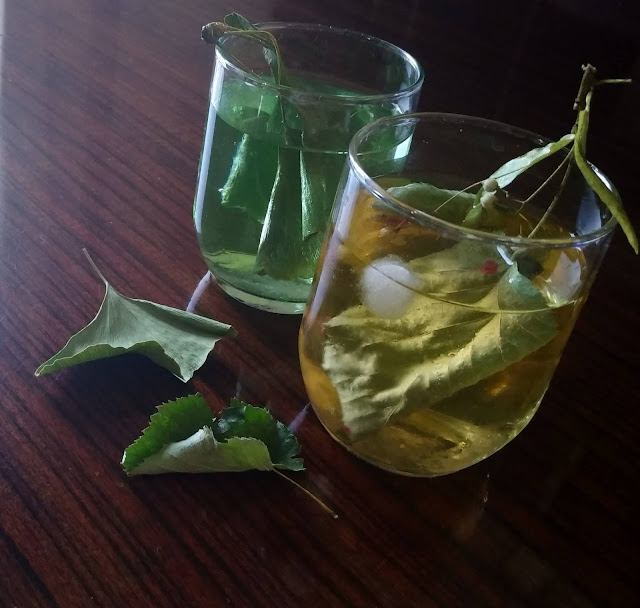Spices and carnival: turmeric and coriander.
Coriander: it is a plant discussed because we
find it both in pagan feasts (carnival - "Carnem Levare", that is, in
the ban on consuming meat during the Lenten period, that is, after Shrove
Tuesday) and in the Bible (after the exodus the hungry Jews were satiated with
the manna rained from the sky that tasted similar to coriander). The latter nod
suggests that this spice has digestive activities as well, excluding the
children of Israel from suffering from ingestion.
The Jews adapted the use of coriander by the
Egyptians who considered it so necessary and useful that they placed it in the
tombs of the pharaohs, presumably to prevent digestive disturbances in the
afterlife. This activity has also been confirmed by specific studies to the
point of finding it in liqueurs, together with carminative plants (to enhance
the effect) and with laxatives (to sweeten the purgative effect). Instead the
Romans used it as a spice to preserve meat. This ability has been confirmed by
a Russian-Japanese study. This herb contains substances that suppress certain
bacteria, fungi and insect larvae that attack meat, the same microorganisms can
also attack humans. Therefore it would be better to wash the cut or peeled part
thoroughly with water and then sprinkle with coriander (also read cinnamon).
Some possibilities of interest for this plant
are as hypoglycemic (therefore useful in symbiosis with insulin treatment to
enhance drug therapy) and as an adjuvant for arthritis (anti-inflammatory
action). The coriander infusion can also be used as a detox towards heavy
metals as it is a chelating agent for the latter. Five glasses of boiling water
are used for a bunch of coriander leaves (stripped of the stems). It is left to
infuse for about 20 minutes and then passed into a colander. To be sweetened
with honey.
Turmeric: nothing but a litmus test!
In Europe it has not had success and use as in
Indian and Chinese Ayurvedic medicine. Its first use (in the seventies) was as
an ingredient of the papers used in the laboratory to measure alkaline pH given
the change in color, which was then replaced by the papers back in the sun. Its
beneficial effects are still studied mainly in India today given the skepticism
shown by western herbalists and doctors.
It is used
For the treatment of wounds with an
antibacterial action such as coriander, cinnamon.
Digestive, stimulates bile secretion,
promoting the digestion of fats.
In case of intestinal parasites because it
fights the protozoa therefore it is used in case of dysentery as well as in
cases of fever and infections.
Hepatoprotective because curcumin has
protective effects on liver tissues exposed to hepatotoxic drugs (such as
acetaminophenol analgesics like tachipirine) and in cases of continuous alcohol
intake.
Arthritis because curcumin has anti-inflammatory
effects which can also be used to burn the wound.
Cardioprotective because (as well as ginger)
it helps reduce blood cholesterol levels and has a preventive action against
the formation of blood emboli (these lead to heart attacks and some forms of
epilepsy). Here it does not replace drug treatment but makes it work well. It
is having interesting possibilities as an anticancer agent as it inhibits the
growth of lymphoma cancer cells.
There are some contraindications
1. It reduces fertility, this experiment has
not been clarified for men but only in vitro however it is better to avoid in
cases where you want to become pregnant or if you are pregnant.
2. Being curcumin a powerful anticoagulant it
could cause problems for people with coagulation disorders
Various forms can be prepared, although the
preparation of the golden milk is recommended (as Ayurvedic medicine also
recommends) or the root decoction. In case you want to take in the form of
tablets the maximum recommended dose of curcumin depends on the purpose of its
use.
The boiling water is mixed with the turmeric
powder and a little black pepper which enhances its effect (due to intestinal
absorption) thus obtaining a homogeneous and dense mixture. This should be
added (half a teaspoon) in a glass of milk, preferably of vegetable origin in
the evening before bedtime. It should be kept in the refrigerator.
Instead, the decoction
is prepared by boiling 5 grams of turmeric root (a spoonful of sliced root)
in a cup of water for 3-4 minutes. It is left to rest for 10 minutes, filtered,
and sweetened with honey as desired. To drink a few times
a day. Useful for dealing with winter diseases as well as for hydrating sports.
Turmeric also has many benefits as a cosmetic,
therefore anti-aging cream, anti-inflammatory (regulating sebum), against sun
spots etc.



Commenti
Posta un commento